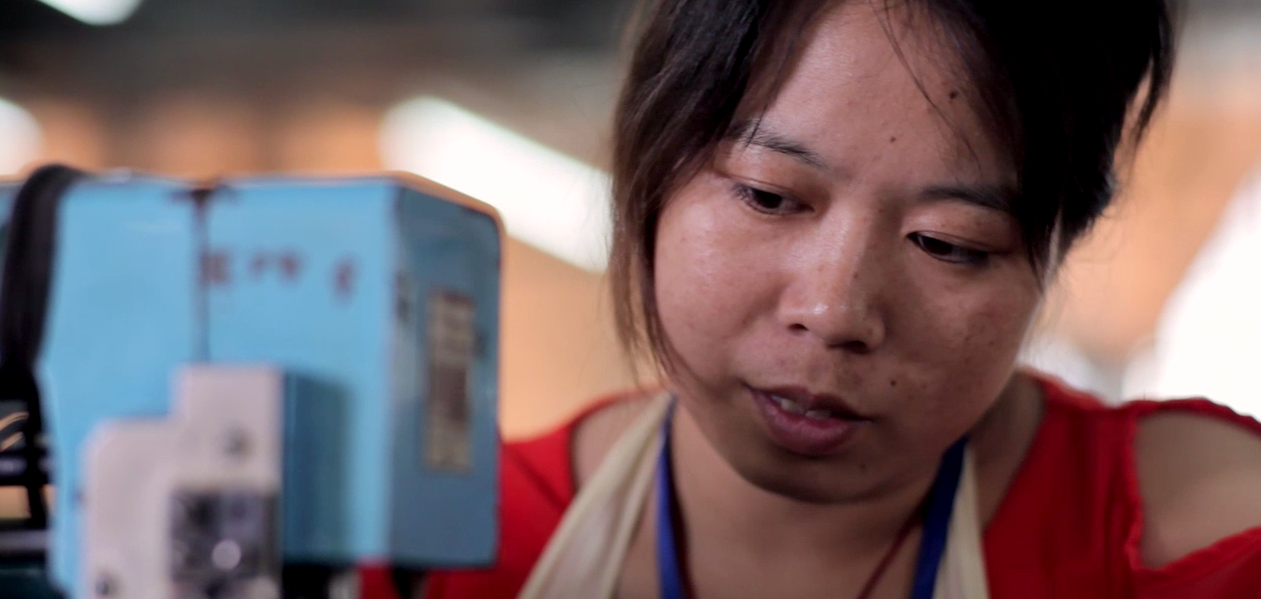Furthering Our Commitment to Human Rights

Nordstrom takes great pride in the products we create, and we value the women and men in our global supply chain who make it possible, which is why we partner with factories to create healthy and fair workplaces. We're pleased to announce a new goal in which by 2023, 70% of all our Nordstrom Made products will be produced in factories that support women's empowerment. We have more than 40 brands in our Nordstrom Made portfolio that reflect our commitment to style, value and quality.
We sat down with Jennifer Jackson-Brown, president of the business responsible for Nordstrom Made, to discuss this new goal.
What inspired this goal and how did you decide to focus on women's empowerment?
At Nordstrom, close to 70% of our employees are women, and women make up the majority of our customers and the world's factory workers. It's the reality of the business we're in, and a commitment to empowerment and equality is simply the right thing to do. In 2007, we started working with Business for Social Responsibility (BSR) HERproject to provide trainings, resources and services for women that focus on the unique challenges and opportunities they face. The peer educator model equips workers to train their coworkers, giving them the chance to build skills that are important to becoming leaders as well as knowledge that helps them support their families and communities. In the past 12 years, we've launched programs in 28 factories to support tens of thousands of workers and are excited to grow those numbers.
What is the commitment?
We are committed to sourcing 70% of all Nordstrom Made products from factories that support women's empowerment by 2023. We will reach approximately 75,000 workers in China, Vietnam, India and Bangladesh. HERproject's main mission is to unlock the full potential of women working in global supply chains through workplace programs on health, financial inclusion and gender equality. Programs include HERhealth, which teaches women how to take care of themselves and their bodies; HERfinance, which teaches financial inclusion such as how to create a budget, save, use an ATM, and manage the finances for themselves and their families; and HERrespect, promoting gender equality and tackling violence against women.
One interesting thing about each of these programs is they're not exclusive to the women – many men have benefited from these trainings and pass on their knowledge to co-workers, wives, sisters and friends.
How will you get there?
We have a great partnership with BSR – a global nonprofit focused on building a just and sustainable world – and want to continue to scale that. We're also partnering with other organizations to offer factory workers the resources and support they need to thrive, such as other U.S. retailers who also use the factories that produce our products. We've always believed collaboration is a key to making meaningful, sustainable change – in this case, the best way to bring about change is to partner with other manufacturers within a factory.
It's an ambitious goal, and we are still working through how we're getting there. Our roadmap isn't complete, but we are starting now – it's too important, and we can't wait until everything is perfect.
How will this impact the business?
Leave it better than we found it is an important value at Nordstrom, and we know by experience that these programs have a positive business element as well. When we think about the triangle of women's empowerment, there are our customers, employees and factory workers who are all motivated for us to do more in the communities where we are making products. Our customers want to know the products they buy are responsibly sourced. Our employees want to know their work is meaningful and doing good in the world. And in the factories, we know that when people are happier and healthier, they have increased productivity, retention and loyalty.
What are the next steps?
Right now, we're focused on growing our partnership with BSR. They do a really good job of bringing people together to achieve a common goal, so working with them will create faster momentum. We're also working on a thoughtful rollout plan to bring these programs to our existing factory partners, as well as how to prioritize which factories to focus on in the beginning.
We know there are a lot of challenges that we'll face as we move toward this goal, and we certainly don't have all the answers right now. However, we're confident that the process we've used to get us to this point, collaboration with our partners, and the buy-in and support from our teams and leaders will transform the lives of women and their families in our global supply chain.
